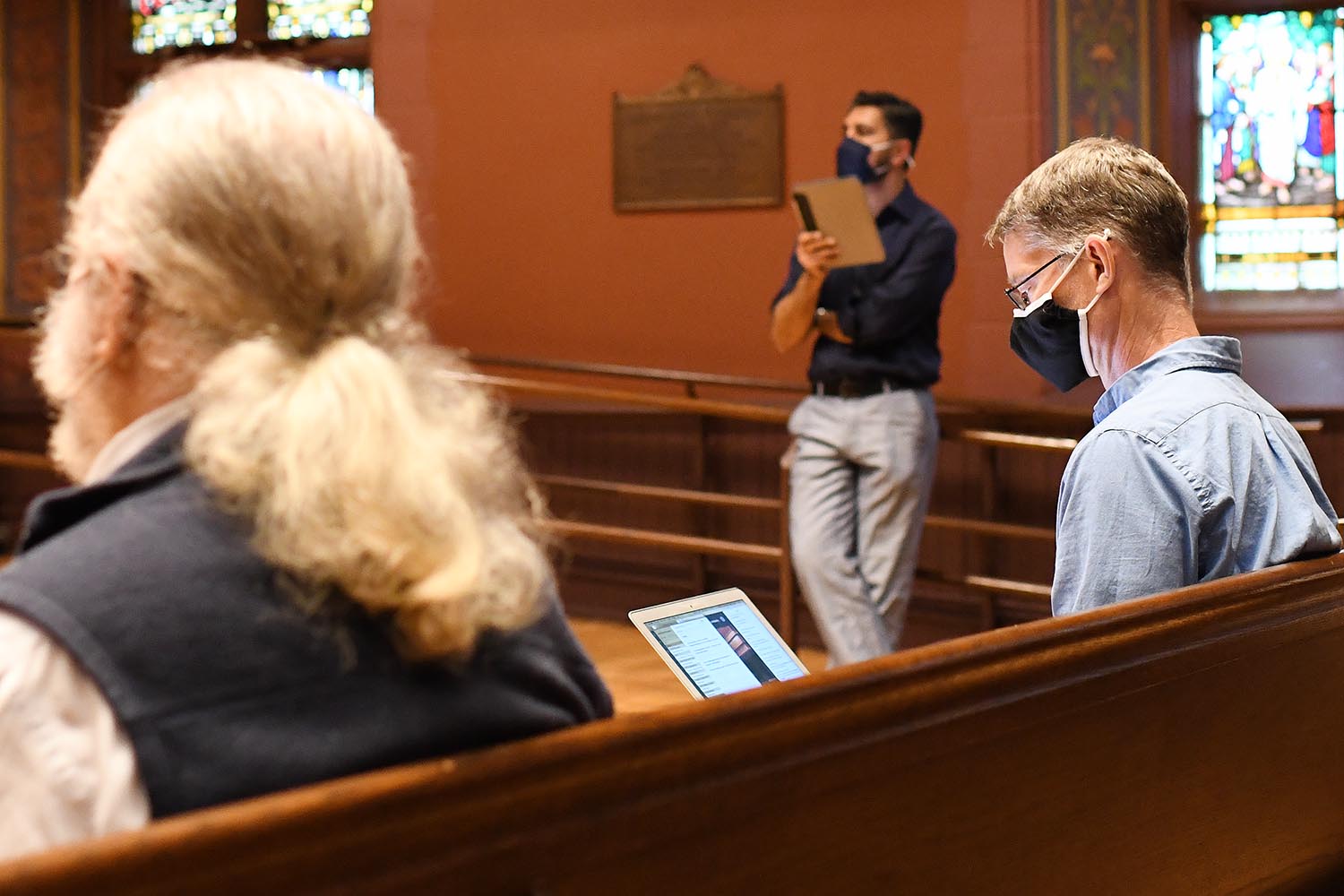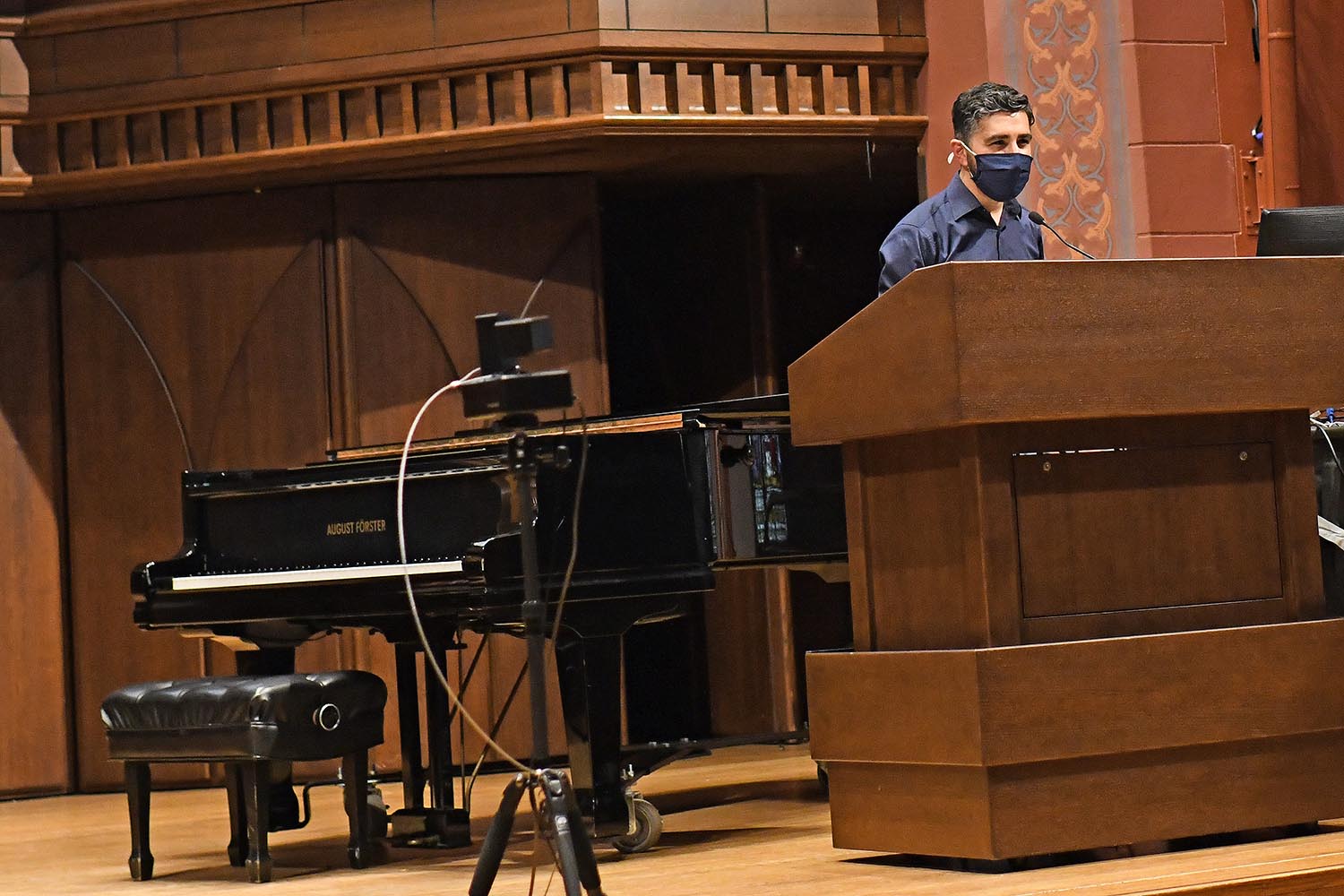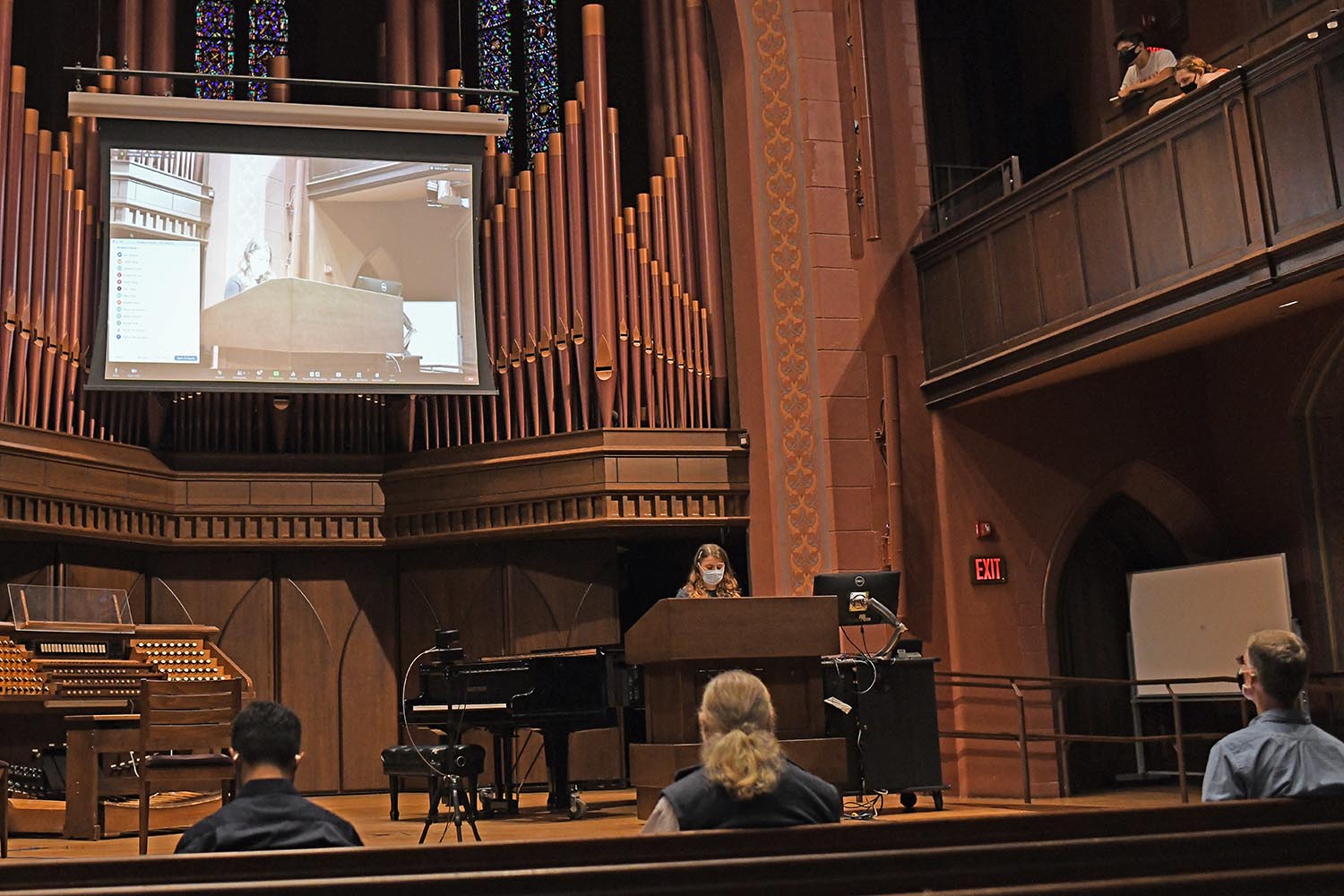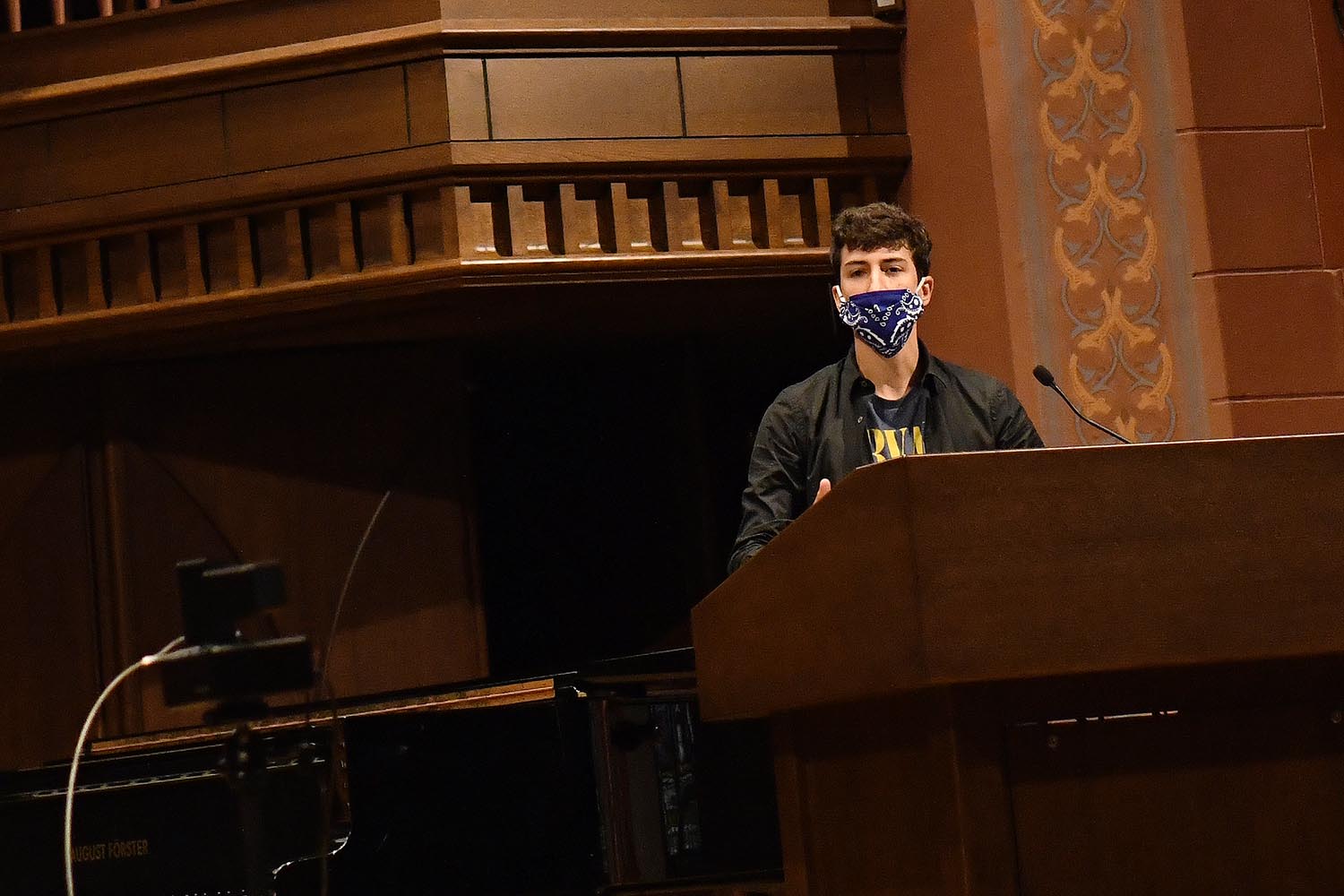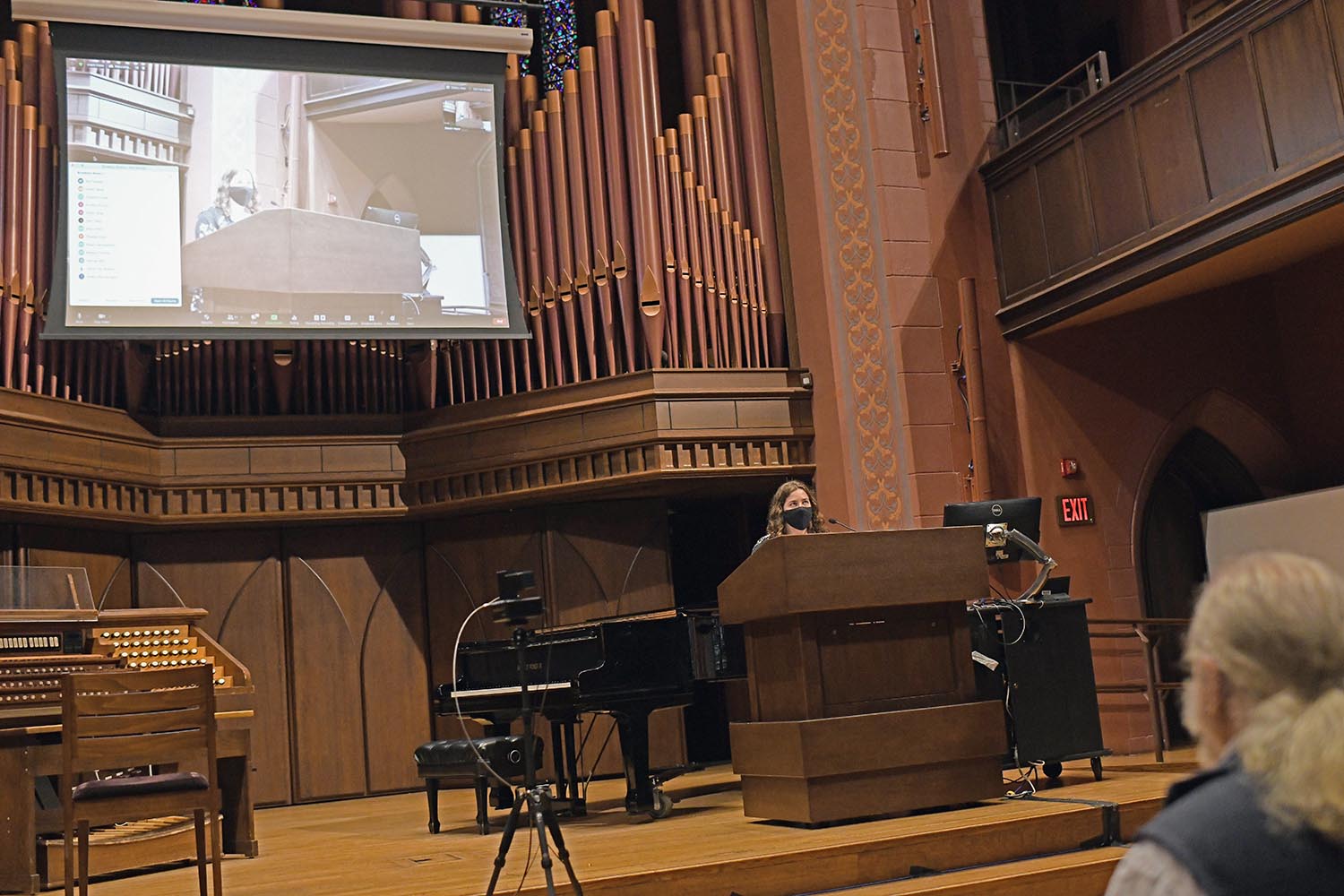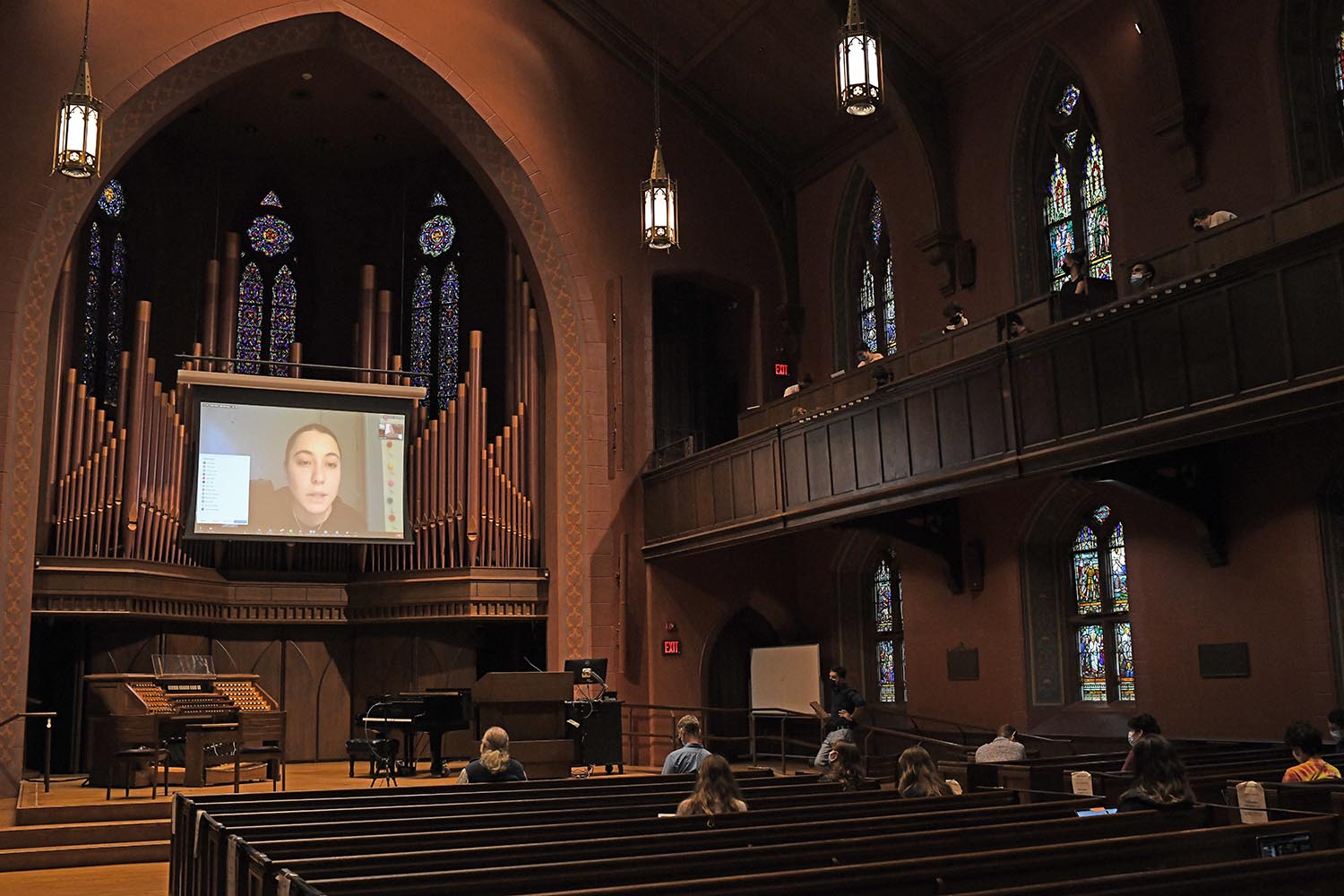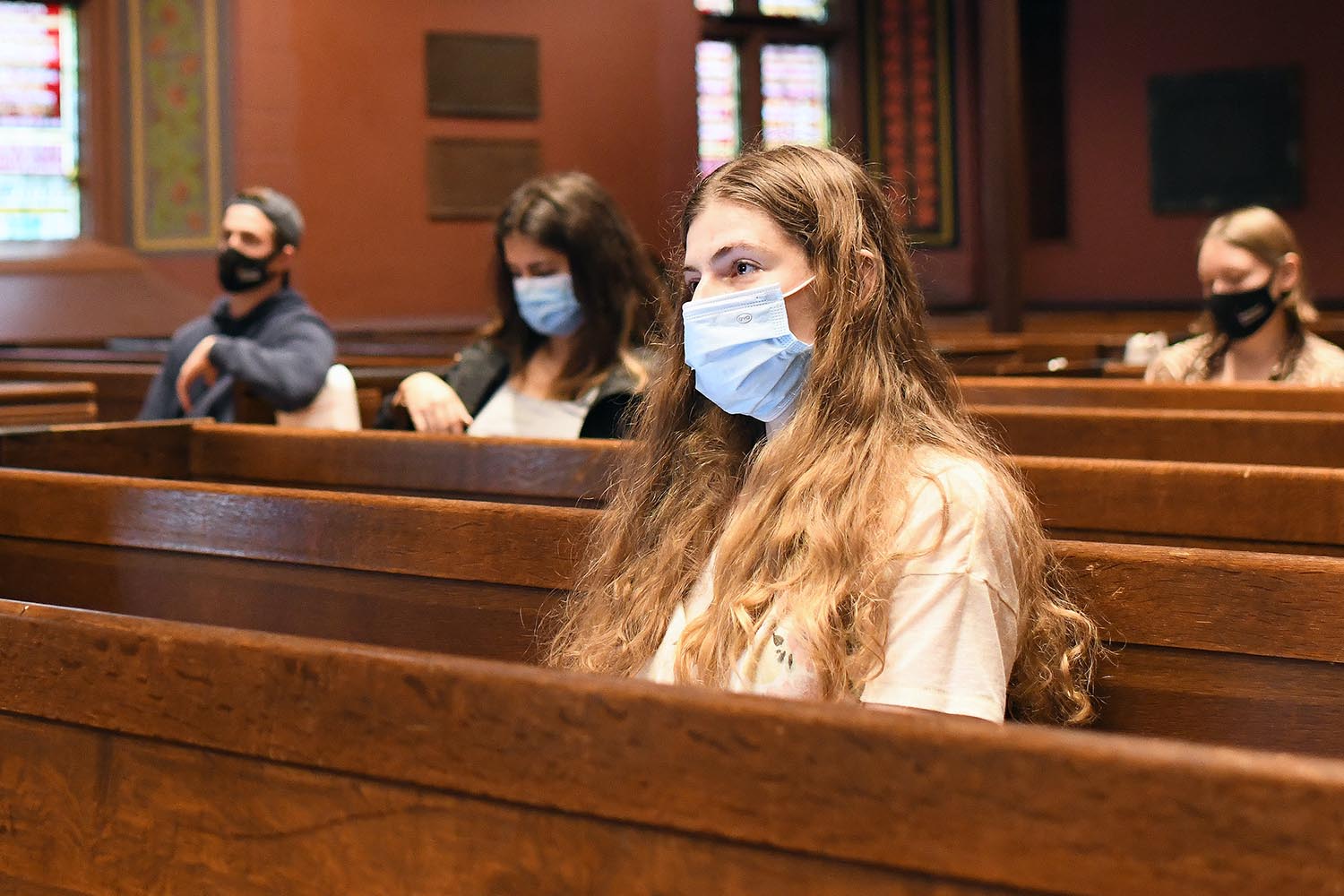Philosophical Debate Serves as Living a Good Life Course’s Midterm
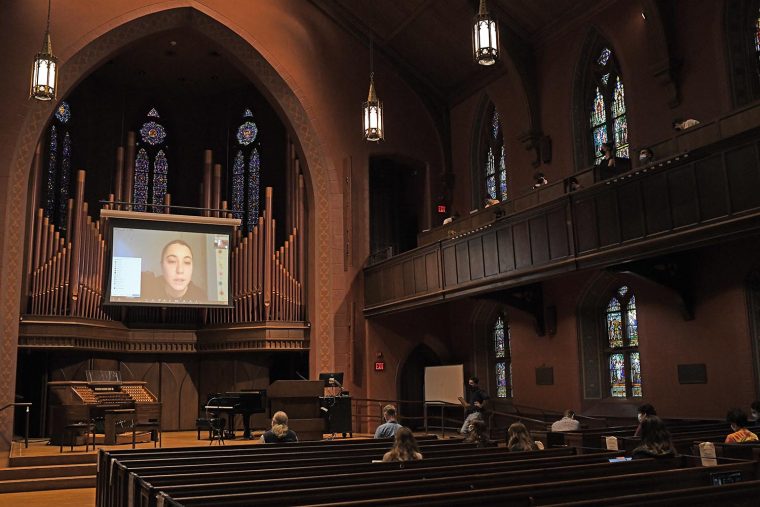
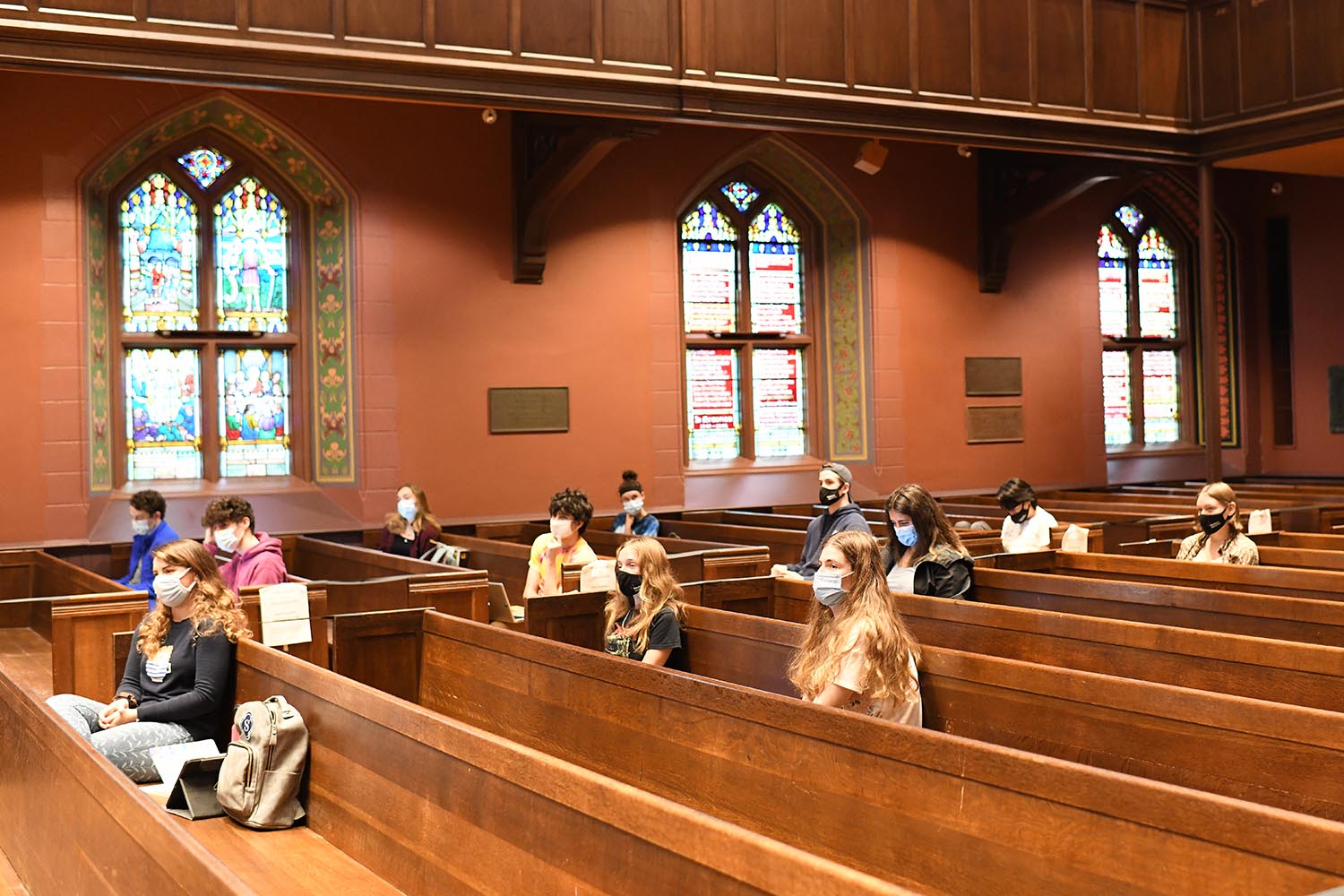
Philosophers in the ancient world, in both the East and the West, typically viewed the practice of philosophy as an activity aimed at changing one’s orientation to the world and, thus, how one lives one’s life. Some of these thinkers developed views that still appear to have contemporary relevance, but many of them also held beliefs that we recognize today as not only outdated but also deeply misguided. Given these blind spots in their thinking, should ancient philosophy be “canceled”?
That was the question up for consideration in a midterm debate held on Oct. 22 as part of PHIL 210: Living a Good Life, co-taught by Steve Angle, Mansfield Freeman Professor of East Asian Studies, professor of philosophy; Tushar Irani, associate professor of letters and philosophy; and Steven Horst, chair and professor of philosophy. The course is one of Wesleyan’s largest in-person courses taught this semester and was featured in an Oct. 19 The New York Times article titled “Ancient Philosophy, Meet Modern Pandemic.”
Held in Memorial Chapel, three in-person groups and one remote-learning group defended their answer to the debate question over three rounds. And at the end, peers voted for the group who best defended their ideas.
“Since the question under debate has been raised in different forms recently both in academic circles and in the media, we thought it important that the students in our course explore the pros and cons to different positions on the issue and reach a decision for themselves,” Professor Irani said. “Each student group was given a pre-assigned position and needed to consider the best arguments they could develop for that position, drawing on what they’ve learned so far about the various approaches to the good life we’ve covered in this course.”
Although the main goal of each group was to argue for their position, the students also argued against the positions of the other teams and responded to questions and challenges raised by other students during the debate. While a team made its opening arguments, students in other groups used Zoom chat to raise questions or challenges. During the debate, Professor Angle drew upon these questions to grill each team’s representative in the second round.
Throughout the semester, the students have explored Chinese, Greco-Roman, and contemporary versions of the idea that philosophy should be seen as a way of living a good life, focusing particularly on how Confucians, Daoists, Aristotelians, and Stoics all agreed that philosophy should aim at making us better people. In Living a Good Life, students ask whether or not these ideas apply in modern-day life.
Group 1 argued yes, cancel ancient philosophy; more harm than good comes from discussing. Group 2 argued yes, deconstruct, expose flaws, and dismiss. Group 3 opted to say no, constructively engage and modify, preserving contemporary relevance. And Group 4 also said no, retain everything and teach it, but by contextualizing and historicizing; these theories on the good life have limited if any contemporary relevance.
After an anonymous poll, 54% of the class felt that Group 3 had the best defense, making them the debate winners.
